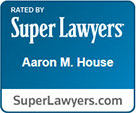Evidence is absolutely essential in proving facts at issue in a legal dispute. Because of the critical nature of certain evidence in demonstrating fault in a personal injury suit, it is important to prevent a party whose fault is at issue from engaging in a practice called spoliation. Spoliation of evidence is the destruction, disposal, or erasure of evidence such that it becomes irretrievable and unable to be produced when needed in the course of litigation. The relevant evidence may include documents, emails and correspondence, digital data, video footage, recordings, and even physical evidence, such as a damaged vehicle or broken set of stairs.
How to Prevent Spoliation of Evidence
The best way to prevent spoliation is to hire a competent and experienced attorney as soon as possible after an injury has occurred. Doing so early will enable your attorney to send spoliation letters (also called “preservation” letters) to defendants and even non-party witnesses to inform them of their duty to preserve relevant evidence. Spoliation can be a serious issue in personal injury cases, but when your attorney sends a well-crafted spoliation notice, you can avoid this potential roadblock. Moreover, if spoliation occurs (that is, a defendant destroys evidence) after preservation letters have been sent, a jury may be able to draw certain inferences from the defendant’s conduct—that the defendant destroyed or failed to preserve the evidence because it was evidence of the defendant’s fault.
Significant Consequences
The law imposes significant consequences for ignoring a spoliation letter. This form of evidence tampering is taken quite seriously because destroying evidence could all but block a plaintiff from making their case in court and cause an unjust legal result. The spoliation doctrine prevents parties from benefiting from failing to prevent the destruction of evidence by allowing jurors to make adverse inferences that the evidence destroyed would have been beneficial to the position of the opposing party.
Missouri law states that the evidentiary spoliation doctrine applies when a person intentionally destroys relevant evidence which would indicate that they sought to commit fraud and prevent the truth from coming to light. If it is found that a party intentionally destroyed evidence with the goal of committing fraud, a judge may provide a jury instruction that tells jurors that based on the absence of particular evidence at the hands of one party, they may infer that it was damaging to their case. However, it must also be demonstrated that the spoliator had a duty, or should have known they had a duty, to preserve the evidence in question. This last element of the spoliation doctrine is where your attorney’s spoliation letter can become vital to a personal injury lawsuit.
When you send a spoliation letter you are putting the other party on notice that documents or items in their possession may be used to prove your claim and that they are, therefore, responsible for preserving them. In other words, you are notifying the other party of their duty not to destroy evidence. Failing to preserve these items after receiving such a notice will result in sanctions being imposed on the defendant and could give rise to the presumption that the evidence would have been harmful to their defense and instruction may be given to the jury to make such an adverse inference. The spoliation letter may be so broad as to direct the other party to preserve any and all possibly relevant evidence, or it may direct the preservation of specific items, documents or pieces of data.
Contact Us Today
If you have been injured due to another person’s or entity’s negligence or wrongdoing, it is important to place the defendant on notice of their duty to preserve evidence as early as possible. Call Aaron M. House at House Law today at 816-875-4260 for a free consultation about your case. Being proactive at the beginning of your dispute will keep you from a position where the evidence needed to prove your case is lost forever.
Tags: personal injury
Related Posts: Poor Conditions Can Contribute to a Serious Crash Kansas City Adopts “Cathryn’s Code”—a New 911 Auditing System—After a Multi-Million Dollar Wrongful Death Settlement How Foreseeability Impacts a Premises Liability Claim in Missouri




